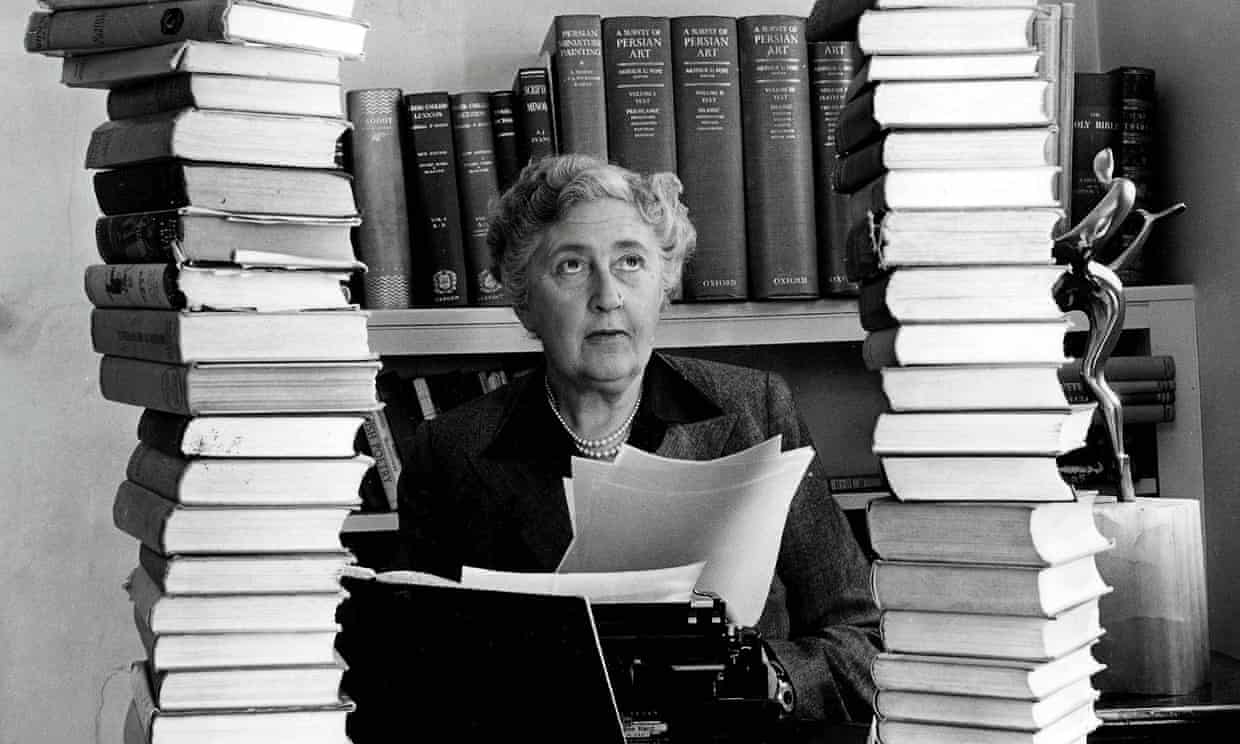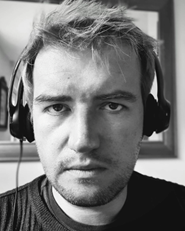In readiness for the BBC’s adaptation of Agatha Christie’s 1939 novel Murder is Easy, which will air this festive season, senior lecturer Anthony Howell lets us in on how the Queen of Crime has added a touch of mystery to new Open University courses.
The sheer star power of Agatha Christie took me by surprise, I must admit. I was aware of the statistics (her novels have sold over 2 billions copies) and that her best-known protagonist, Hercule Poirot, was enjoying new prominence as a result of the recent Kenneth Branagh adaptations. But given that I primarily investigate the dusty corners of the late 18th- and early 19th century (and am used to being read mostly by two old university friends and the dog) I was struck by the degree to which she justified the label ‘popular’. We had decided to make ‘Literature and the Popular’ the organising theme for the first block of teaching material on the new MA in English Literature (A893). But, quite honestly, there is popular fiction and then there is Agatha Christie, in a class all of her own.

Kenneth Branagh as Hercule Poirot in Death on the Nile (2022). This image is publicly available.
With some trepidation, I volunteered early in module production to contribute a unit on Christie for the new MA. I had enjoyed her novels since my teenage years but writing about them in a teaching context would involve venturing some distance from my specialism. Nevertheless, I was confident that with some preparation I could get a handle on it. Christie is normally considered ‘middlebrow’ as an author and, clearly, her work is intended as a form of escapism. Among other things, I was able to touch on how this made it, in the words of Alison Light, an invaluable ‘literature of convalescence’ for the British public after the the First World War. However, Christie also possessed a seemingly supernatural skill for crafting a satisfying clue-puzzle story and it became clear to me that this was the key to the cultural impact of her fiction.
The unit was later adapted into an OpenLearn course, Agatha Christie and the Golden Age of Detective Fiction, with the help of the module Chair, Alex Tickell. Launched in 2006, OpenLearn is the Open University’s home of free learning. It hosts over 10,000 free courses, articles, activities and videos. There were around 15 million visits to the platform last year from all over the globe so pairing Agatha Christie with OpenLearn always had the potential to be a powerful combination. You can view the course here.

OpenLearn: the home of free learning at the OU
Right away, it seemed to have a ready-made audience and the ability to travel all by itself with minimal effort (certainly from me). A range of people interested from all walks of life began to click though the minute it landed on Google. I was invited to take part in different kinds of media to promote it. Local radio, for example, with a lighter tone and a mainstream audience. It was hugely enjoyable. The Faculty’s social media team created a buzz with some activities on Facebook, Twitter and Instagram. People responded immediately, sharing pictures of their own rare collections of Christie’s novels, participating in quizzes and games and generally responding very warmly to this opportunity to share their enthusiasm for one of their favourite authors.
Although we did take the course out into the world, the world also came looking for us. For the first time, I received emails out of the blue from learners not yet enrolled on an Open University course. One wanted help to download and print a copy of the course for her elderly mother, who struggled to read on a screen. Another had recently visited Torquay museum and thought the course might be a good fit for the Agatha Christie display there.

Agatha Christie at her home: Winterbrook House, Berkshire, 1950. This image is publicly available.
Professionally too, unsolicited requests arrived. An offer came to act as a reviewer for a new course on European Crime fiction, currently under production in the school of Social Sciences at the OU. I was encouraged to attend ‘Captivating Criminality’, the annual conference of the International Crime Fiction Association, which took place at the imposing setting of Corsham Court in Wiltshire. Experts in the field were keen to hear more about the OpenLearn course and the feedback from students. I’ll be moonlighting at the next one in Budapest too.
This is a very roundabout way of explaining that, since writing the course, I have found myself periodically snatched away from my usual teaching and research interests and taken in quite different directions. It sometimes feels as if I have been kidnapped by Christie herself and taken by her to new places without very much agency of my own; plotted helplessly into a new narrative.
Agatha Christie and the Golden Age of Detective Fiction now feels established on OpenLearn. In the first few weeks, the course page had received over 15,000 visits. As of this month, that has now risen to 57,000 visits and 2,460 enrolled learners (with 806 gaining statements of participation). I was delighted to learn that the course will soon feature in a new landing page featuring Women in the Arts, curated by Hannah Parish. I would say that it’s comfortably the biggest pedagogical impact I’ve managed to have in my career so far. But, although it’s been enormous fun for me, it doesn’t feel much like my impact. I’m left, in the end, along with the detective fiction enthusiasts, to ponder a familiar question: whodunit?
 Anthony Howell is a Senior Lecturer, Staff Tutor and Associate lecturer in the Department of English Literature and Creative Writing at the Open University. He is currently Chair of the MA in English Part 2 and a module team member on A893 and A894. Anthony has contributed teaching units to a variety of OU modules and developed new teaching strategies to support students in secure environments. His research interests are in the field of Romanticism, in particular the work of Sir Walter Scott, William Wordsworth and John Clare.
Anthony Howell is a Senior Lecturer, Staff Tutor and Associate lecturer in the Department of English Literature and Creative Writing at the Open University. He is currently Chair of the MA in English Part 2 and a module team member on A893 and A894. Anthony has contributed teaching units to a variety of OU modules and developed new teaching strategies to support students in secure environments. His research interests are in the field of Romanticism, in particular the work of Sir Walter Scott, William Wordsworth and John Clare.
